Rwanda
Rwandans visiting the Kigali Genocide Memorial react to the publication of a report Friday on France's role in their nation's 1994 genocidal atrocity against the Tutsi ethnic group.
The report -- based on research led by historian Vincent Duclert, concludes there had been a "failure" on the part of France under former leader Francois Mitterrand.
Jean Dushimimana, a visitor at the museum, appears to have mixed feelings.
"There is nothing that the French can do to pay back for what they did (in the genocide) but what I would say is that maybe they could do something for the victims and the survivors who are still suffering from the effects of the genocide to help them improve their lives."
Paul Habumugisha, another visitor at the museum, seems a bit more positive about the report.
"We were afraid to go to France to follow all activities from France because they ignored what they did to participate in the genocide, but now if they accept it, it means that France is going to be our friend."
Although the report states that France bears overwhelming responsibilities for the genocide, it claims that there was no evidence Paris was complicit in the slaughter of around 800,000 people - mainly of the Tusi minority.
John Ruku-Rwabyoma, a member of parliament (MP) for the Rwandan Patriotic Front (RPF) believes that after all the time that has passed, this is finally a good move forward.
"It would have been even much better if France had come out openly and given the whole story as it was. Having said that, to see what came out today, as I said, it is a positive move in the right direction."
Rwanda's foreign ministry said the results from the country's own investigation commissioned in 2017 would be released in the coming weeks to complement and enrich this latest report.
Ruku-Rwabyoma wants the whole truth about France's role in the genocide to finally be out there and sincerely heard.
"The report is still lacking, because we have the whole story, we know the whole story. And I’m looking forward to the report that will be given by the Rwandan government that was commissioned in 2017. I’m sure it will have more facts that were not really explored in the French report."
- 'Personal Relationship' -
Former Tutsi rebel and Rwandan President since the year 2000, Paul Kagame has maintained for decades the role of France in the genocide and only time will tell if relations between the two countries - following this report, will improve.
Macron, who ordered the creation of the commission in May 2019, welcomed the report as marking "considerable progress" in understanding France's role in Rwanda from 1990 to 1994.
The Elysee said it hoped the report would mark an "irreversible" reconciliation process between France and Rwanda, which Macron has said he wants to visit this year.
Friday's report produced by a historical commission set up by French President Emmanuel Macron stated that France was "blind" to preparations for the massacres.
This report comes after years of accusations France did not do enough to halt the massacres and was even complicit in the crimes.
Rwanda hailed the report as "an important step toward a common understanding of France's role in the genocide against the Tutsi".
- Uncomfortable Truths -
The genocide between April and July of 1994 began after Rwanda's Hutu president Juvenal Habyarimana, with whom Paris had cultivated close ties, was killed when his plane was shot down over Kigali on April 6.
"Is France an accomplice to the genocide of the Tutsi? If by this we mean a willingness to join a genocidal operation, nothing in the archives that were examined demonstrates this," the report's conclusions said.
"Nevertheless, for a long time, France was involved with a regime that encouraged racist massacres... It remained blind to the preparation of genocide by the most radical elements of this regime."
It criticised the French authorities under Mitterrand for adopting a "binary view" that set Habyarimana as a "Hutu ally" against an "enemy" of Tutsi forces backed by Uganda and then offering military intervention only "belatedly" when it was too late to halt the genocide.
"The research therefore establishes a set of responsibilities, both serious and overwhelming," it said.
France notably led Operation Turquoise, a military-humanitarian intervention launched under a UN mandate in June 1994. Its critics believe that it was in reality aimed at supporting the genocidal Hutu government.
And there have also been repeated accusations that authorities in Paris helped suspects in the Rwanda genocide to escape while under French military protection.
The report concluded that in July 1994, "murderers but also the masterminds of the genocide" were in a safe zone established by French forces in the west of the country "who the French political authorities refused to arrest".
The report tells of French decision-makers trapped in "post-colonial" thinking who supported the "racist, corrupt and violent" regime of Habyarimana as he faced a Tutsi rebellion which many considered was directed from English-speaking Uganda.




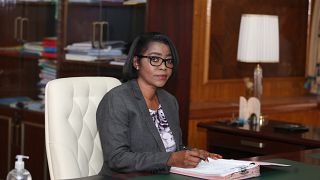
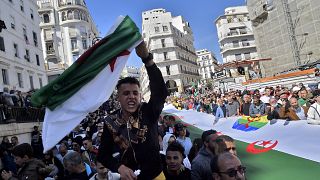
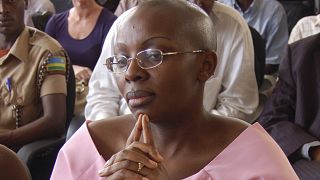
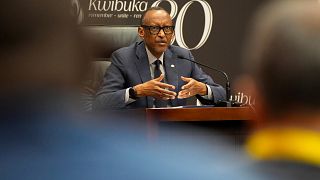
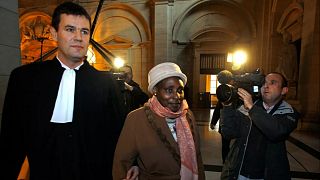



00:56
Peace talks between DRC and M23 rebels 'moving in the right direction'
01:00
Pix of the Day: July 10, 2025
01:00
Pix of the Day: July 8, 2025
02:15
Small boat crossings by migrants in northern France on the rise
01:12
Eastern DRC tensions: UN points to Rwanda's role in AFC/M23 conflict
02:22
Cameroonian marine conservationists trained as scientific divers